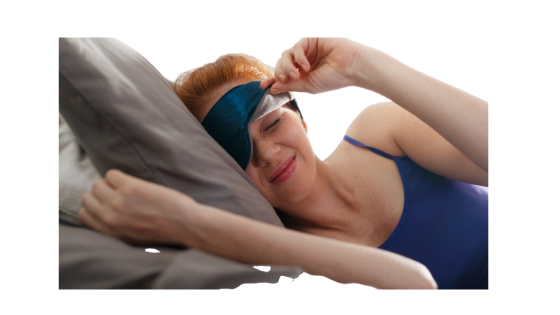Sleep studies help doctors diagnose sleep disorders such as sleep apnea, periodic limb movement disorder, narcolepsy, restless legs syndrome, insomnia, and nighttime behaviors like sleepwalking and REM sleep behavior disorder. … sleep study is done in a room made to be comfortable and dark for sleeping.
It’s not uncommon for me to send patients for an overnight sleep study. Not all sleep problems can be diagnosed at a doctor’s office. For some sleep conditions, it’s necessary to observe and measure a patient actually sleeping.
Nobody relishes the idea of going to a sleep center for a night. When I order a sleep study for a patient, it’s because I know it is a necessary step in arriving at the right diagnosis and treatment. Sleep studies aren’t the right way to assess every sleep issue. But for some sleep conditions, these studies are critical to getting you the help you need for your nightly rest—which in turn affects your health, your mood, your relationships, and your performance.
Let’s take a look at the conditions that are diagnosed using sleep studies, and the symptoms to watch for.
What’s the purpose of a sleep study?
Sleep study measures the characteristics of your sleep and your body’s behavior during sleep. Sleep studies are used to:
• Diagnose sleep disorders
• Help clinicians determine the right treatment for sleep problems
• Adjust treatment for people already diagnosed with sleep conditions
Sleep studies take place in a sleep center. In some cases, sleep studies can be conducted at home. Most sleep studies are conducted overnight, but certain studies take place during the day. You’ll sleep in a private bedroom that’s designed for restful sleep ( quiet, cool, and dark) and be monitored throughout the night, by sleep technicians who observe you and use technology that captures detailed data about your body’s activity during sleep.
It’s common for people to feel stressed and anxious about a sleep study, and to not sleep as well as they would at home. That’s nothing to worry about. Sleeping less, and waking more often than you normally do, won’t affect the results of a sleep study.
Symptoms that prompt a sleep study
There are several different sleep disorders that are diagnosed using sleep studies, including sleep apnea, periodic limb movement disorder, restless leg syndrome, and narcolepsy.
Sleep apnea is an interruption of normal breathing during sleep. Breath can become shallow (hypopnea) or briefly stopped altogether (apnea). Often, sleepers are not aware of these episodes of interrupted breathing. Symptoms of sleep apnea include:
• Snoring, often loud
• Gasping or choking sounds
• Dry mouth or sore throat upon waking
• Daytime tiredness
• Headaches
• Difficulty concentration
• Irritability and mood swings
Sleep apnea is most often treated with CPAP (continuous positive airway pressure). Mouthpieces worn at night and, in mild cases, lifestyle changes are also treatments for sleep apnea. This sleep disorder is important to diagnose: untreated, sleep apnea increases a person’s risk for cardiovascular disease and type 2 diabetes, as well as for accidents. More than 25 million adults in the United States suffer from sleep apnea.
Periodic movements are involuntary muscle movements that can occur during sleep. These muscle movements happen most frequently in the lower legs, but can occur in other parts of the body as well. Periodic limb movements are most common during sleep, but can also happen while you are awake. Like with sleep apnea, people often are not aware they are experiencing periodic limb movements, and bed partners tend to be more likely to know. Whether you’re aware of them or not, these nighttime movements are disruptive sleep, leading to symptoms including:
• Unrefreshing sleep
• Daytime tiredness
• Trouble with focus and attention
• Memory problems
• Depression
Periodic limb movement disorder is a distinct sleep condition. These involuntary movements are also associated with other sleep disorders, including restless leg syndrome, narcolepsy, and REM behavior disorder.
Restless leg syndrome (RLS) involves uncomfortable sensations in lower limbs, accompanied by a powerful need to move one’s legs. These hallmark symptoms of restless leg syndrome happen most often in the latter part of the day and evening, typically when a person is sitting or lying down, relaxing or trying to sleep. The creeping, crawling sensations and urge to move the legs are also likely to occur when seated for long stretches of time. RLS can make falling asleep and staying asleep difficult and leads to sleep deprivation and to restless, poor quality sleep. Symptoms of RLS include:
• Feelings of creeping, tingling, crawling sensations in the lower legs, and less often in the arms, head, and chest. These feelings can be intense, and only relieved by moving limbs, but return when you become still again.
• Daytime tiredness
• Trouble falling asleep
• Sleep deprivation
• Feelings of restlessness
As much as 10 percent of the U.S. population may have RLS, according to estimates.
Narcolepsy is a sleep disorder that’s characterized by excessive daytime tiredness, often combined with sleep attacks that come on suddenly at any time of day. Narcolepsy is more common than many people realize: it’s estimated to affect about 1 out of every 2,000 Americans, or roughly 200,000 people in the U.S. Narcolepsy is significantly under-diagnosed: experts estimate that only 25 percent of people with narcolepsy know they have the sleep disorder.
Symptoms of narcolepsy include:
• Excessive daytime sleepiness
• Sudden sleep attacks
• Cataplexy: a sudden loss of muscle tone, which can result in sluggish speech, or feelings of weakness or buckling in muscles
• Fragmented nighttime sleep
• Sleep paralysis: when you wake but can’t move or speak
Whatever your sleep-related symptoms are, it’s important to talk with your doctor about them, so you can get the help you need—including, perhaps, a sleep test.


